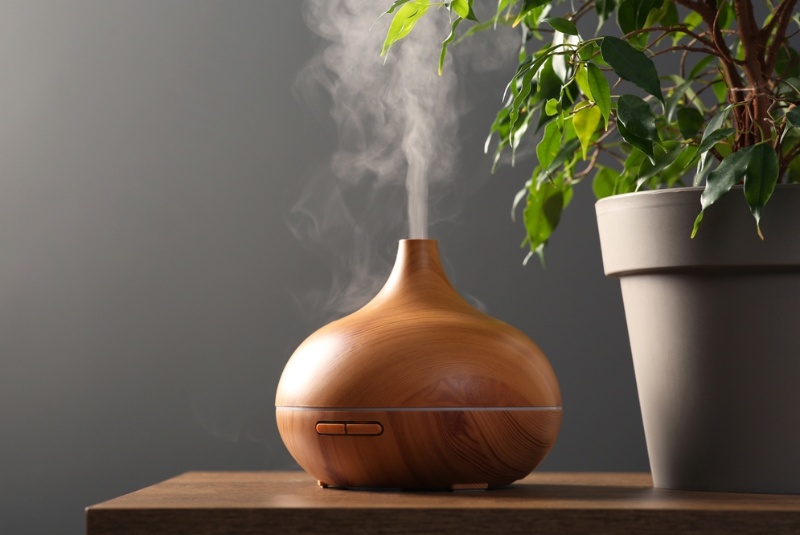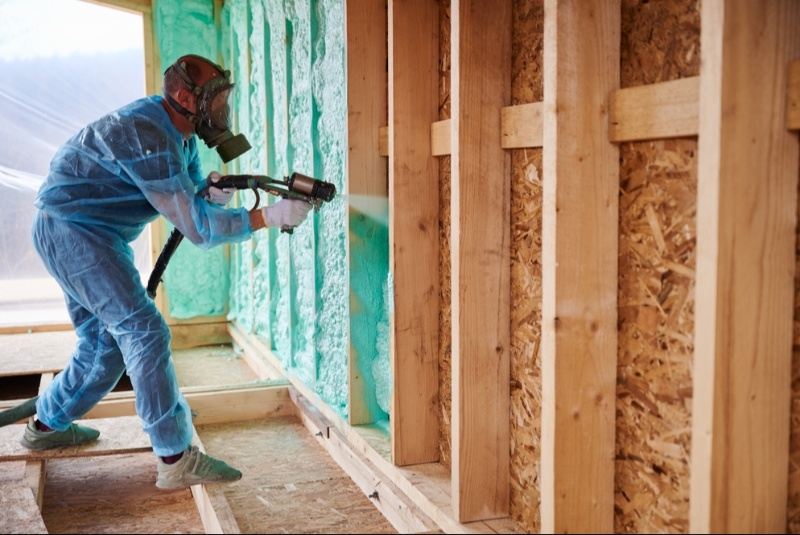During the summer, allergies can become a significant nuisance, exacerbated by dry air which can irritate nasal passages and airways. A humidifier adds necessary moisture to the air, potentially easing these symptoms by keeping the nasal passages moist and more capable of trapping and clearing allergens. This guide focuses on selecting the ideal humidifier to alleviate summer allergy symptoms effectively, considering factors like the device's type, appropriate size for your space, specialized features for allergy sufferers, and essential maintenance tips to ensure optimal function and hygiene.
Understanding How Humidifiers Can Help with Allergies
Humidifiers are beneficial for allergy sufferers because they help maintain optimal indoor humidity levels, which can prevent the airways from becoming dry and irritated. Proper humidity levels help the tiny hairs in the nasal passages to move freely and effectively, which is essential for trapping and expelling dust, pollen, and other allergens that can trigger symptoms. Maintaining indoor humidity levels between 30% and 50% helps to create an environment that is unfavorable for allergens like dust mites, which prefer more humid conditions, and reduces the likelihood of dry air that can exacerbate respiratory symptoms.
Types of Humidifiers: Pros and Cons
Selecting the right type of humidifier depends on personal preferences and specific health needs. Ultrasonic humidifiers are popular because they are quiet and efficient, using ultrasonic vibrations to create a fine mist, but they can produce a white dust if used with hard water. Evaporative humidifiers naturally humidify the air by evaporating water through a filter, which can also help remove some particles from the air; however, they tend to be noisier. Steam vaporizers are the most hygienic option as they boil water to release steam, effectively killing bacteria and mold before they can be released into the air, though they do use more energy.
Features to Look for in Humidifiers for Allergies
When shopping for a humidifier to combat allergies, it's crucial to look for features that can specifically aid in reducing allergy symptoms. A unit with a built-in hygrometer for monitoring humidity levels ensures you can maintain the ideal range without inadvertently creating an environment that fosters mold growth. Models equipped with UV lights or antibacterial filters can further purify the air from potential allergens and pathogens, ensuring a cleaner air output. Additionally, finding a humidifier that operates quietly is especially beneficial if you plan to use it in a bedroom to ensure it doesn't disrupt sleep.

Choosing the Right Size Humidifier
The effectiveness of a humidifier is greatly influenced by its size relative to the space where it will be used. For personal use in smaller spaces like bedrooms or offices, a tabletop humidifier is usually sufficient. For larger areas or the whole house, there are console models and whole-home systems that integrate with your existing HVAC system to provide coverage throughout your dwelling. It is important to calculate the square footage of your space and choose a humidifier designed to cover that area effectively to ensure efficient humidity control without over-saturation.
Maintaining Your Humidifier to Reduce Allergens
Maintenance is key to ensuring that humidifiers do not become a source of allergens themselves. Regularly cleaning your humidifier prevents the buildup of mold and bacteria within the water tank and on the filters, which could otherwise be released into the air. It’s essential to follow the manufacturer’s guidelines for cleaning and to use fresh water daily. If your model uses filters, replace or clean them as instructed to maintain efficiency and cleanliness. This will keep the humidifier functioning effectively and safely, enhancing your indoor air quality and reducing allergy symptoms.
Best Practices for Humidifier Use in Summer
To maximize the benefits of using a humidifier during the summer allergy season, several best practices should be observed. Utilizing distilled or demineralized water minimizes the buildup of minerals and the emission of white dust, which can irritate respiratory symptoms. Positioning your humidifier correctly can also affect its efficiency; it should be placed on a flat, stable surface away from direct sunlight and electronic equipment. Adjusting settings according to real-time humidity levels, which can be monitored via a hygrometer, ensures the humidity stays within the ideal range, preventing the environment from becoming overly humid.
The Impact of Humidity on Common Summer Allergens
Controlling indoor humidity is crucial in managing allergens. While humidifiers help by moistening the air and reducing the dryness that can exacerbate allergies, too much humidity can create an environment conducive to the growth of dust mites and mold—both common allergens. Keeping indoor humidity within the 30% to 50% range strikes a balance that can help in minimizing these allergens. A humidifier with an adjustable humidistat or one that automatically adjusts its output can maintain these optimal conditions without manual intervention, simplifying the management of allergy symptoms.
Additional Ways to Combat Summer Allergies
While humidifiers play a significant role in alleviating allergy symptoms, they are most effective when used in conjunction with other allergy management strategies. Using air purifiers to filter out pollen, dust, and pet dander, keeping windows closed to prevent outdoor allergens from entering, and regular cleaning to reduce indoor allergen accumulation can all help manage allergy symptoms more effectively. By integrating these approaches with the use of a humidifier, you can create a comprehensive plan for maintaining a comfortable and healthy indoor environment during the allergy season.
Finding the right humidifier can greatly enhance your comfort and health during the summer by alleviating allergy symptoms. By understanding the different types of humidifiers, the specific features that aid in allergy relief, and the correct maintenance practices, you can choose a device that suits your needs and maintains optimal indoor air quality. With the right humidifier and additional allergy control measures, you can enjoy a less symptomatic summer, regardless of the allergens in the air.




